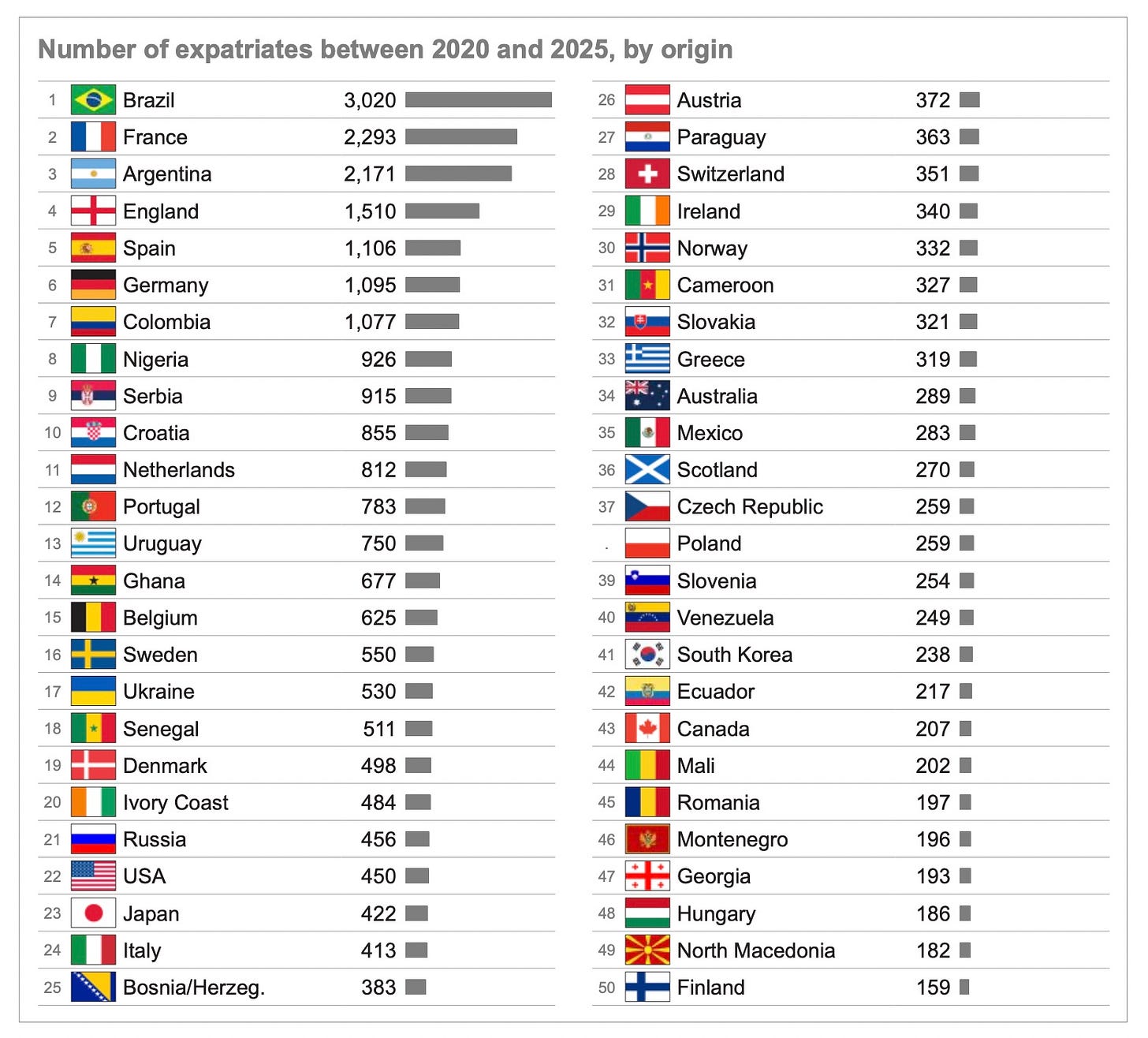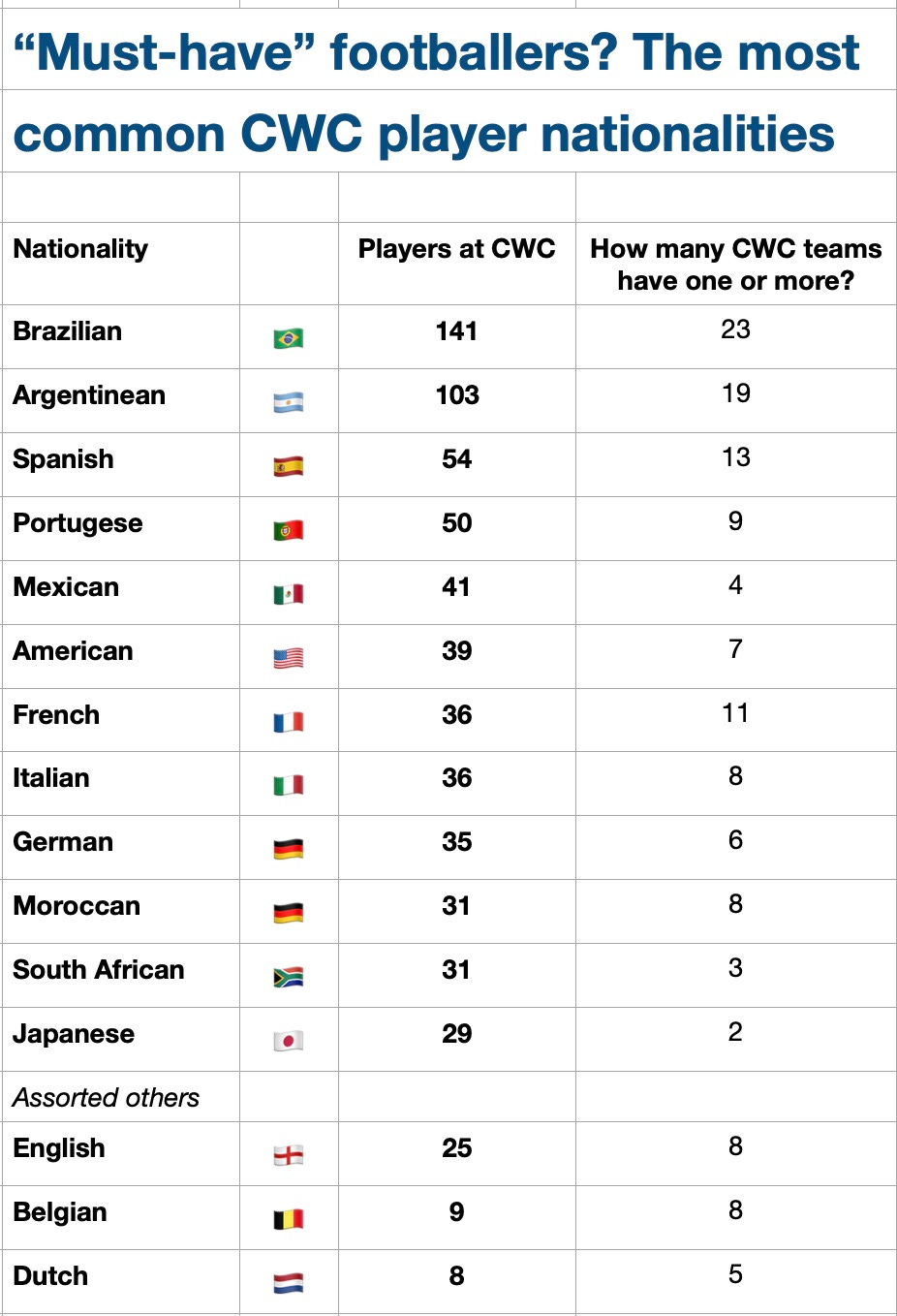It's just like watching Brazil: the data that shows the most wanted players in the world
A recent "census" of football expatriates globally was emphatic in proving footballers from the South American nation are most common. The Club World Cup backs that up
Everybody loves a Brazilian footballer. Or to be more precise, Brazilian footballers remain the most in-demand nationality of player across the world.
A report last month from the CIES Football Observatory catalogued the 100 nations who had exported the most professional footballers to other nations between 2020 and 2025 (full report below, and also available via the CIES website).
And at No1? Brazil with 3,020 individual expat footballers in the period under review, making a living outside Brazil, followed by France (2,293 French expats working outside France), Argentina (2,171), England (1,510, with a large caveat) and Spain (1,106).
The caveat for England is that the figure includes players making a living in the same United Kingdom of which England is a part, mostly in Scotland but also Wales and Northern Ireland. The Brazilian expats, and the French, Argentineans and Spanish tend to be dispersed widely across the world, and particularly across Europe.
The top 50 exporting nations are in the graphic below, and below that I’ll explore how the ongoing Club World Cup (CWC) emphatically supports the case that Brazilians remain the “must-have” nationality of player in global club football.
The Club World Cup as a “nationality barometer”
The most represented player nationality at the ongoing Club World Cup in the USA, by far, is Brazilian.
At the start of the tournament, no fewer than 141 Brazilians were included in the 32 squads of the clubs involved. And while Brazil contributed more clubs than any other nation - the quartet of Palmeiras, Botafogo, Flamengo and Fluminense - a significant majority of the 32 participating clubs (or 23 of 32, or 72%) had at least one Brazilian in their squads.
Sporting Intelligence readers are knowledgeable folk, so you’ll probably know that Al Ain of the UAE have Erik as a left-back, while Malcom is among four Brazilians at Al-Hilal. Atletico Madrid’s squad went home early but had a Brazilian, while Chelsea reached the knockouts with one: Andrey Santos.
Dortmund have former Man City winger Yan Couto. ES Tunis had two Brazilians and Inter Miami have one, and Inter Milan two, and Juventus two, including former Man City player Douglas Luiz. Los Angeles FC started the tournament with a pair of Brazilians, as did Mamelodi Sundowns, while Manchester City arrived with three: Ederson, Savinho and Vitor Reis.
Pachuca of Mexico had three too, including John Kennedy, not to be confused with his team-mate Kenedy. Porto arrived at the CWC with four Brazilians and so did Real Madrid, while PSG “only” had three.
Seattle had a Brazilian, and Ulsan had two, and Urawa Red Diamonds three, the same as Wydad of Morocco.
There will, almost inevitably, be at least one Brazilian in the team that wins this competition, from wherever in the world that team hails.
As FIFA reported at the end of the group stage: “Brazil had the most goalscorers of any country with 18, just ahead of South American neighbours Argentina (17), with France (11) next among the 38 different nationalities that found the net…
“In total, 72 nationalities were represented on the pitch, with Brazil and Argentina again leading the way with the most players (91 and 73 respectively). Portugal (32) were third-highest overall and the best-represented European country…
“There are also a competition-high 117 Brazilian players in the squads of the Round of 16 clubs with Italy (35) and Germany (34) the next-most represented, while 49 different countries will have at least one player involved.”






